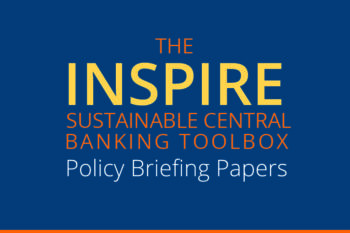Pierre Monnin

Policy
Policy - 2025
This CETEx report makes the case for a consolidated macroprudential buffer framework to ensure the financial system’s resilience under increasingly complex and uncertain conditions. Read more

Policy - 2024
Sovereign bonds are central to aligning finance flows with the net zero transition. This report aims to understand the system-wide context within which central banks can make a responsible contribution to this alignment. Read more

Policy - 2023
Africa’s economies are contending with a diverse set of challenges and opportunities in relation to building low-carbon, green economies and the transition to net zero emissions.
This report presents a country classification of all 54 African economies' risks and opportunities from climate change and the net zero transition. This aims to support central banks to tailor their policy responses to the unique contexts in which they operate. Read more

This paper discusses the different macroprudential options available to financial regulators and supervisors to address climate-related systemic risks. Read more

Policy - 2022
This paper sets out why it is important for central banks and supervisors to actively support the just transition, suggests a three-step roadmap for achieving this goal, and explores policy options for aligning monetary policy operations and financial regulation with the just transition. Read more

News
News - 2023
Africa’s central banks are uniquely positioned to support their countries’ transitions to a green economy, but there is no one-size-fits-all approach, write Reuben Wambui, Joseph Feyertag and Pierre Monnin. Read more


